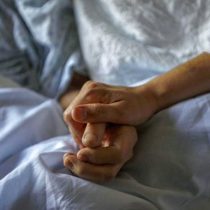
In a column entitled “Euthanasia and Autonomy”, published on April 22 of this year, Don Luca Valera, Director of the UC Bioethics Center, explained some reasons why he believes that a person who decides to end his life – meeting the requirements that the bill establishes – would not be autonomous. In the light of the following, I would like to argue against Mr Valera’s position, since the reasons he gives in the column show that his thesis rests on an idea of autonomy which is problematic. It should be acknowledged, however, that the author right on one point: the determination of an act as “autonomous” will depend on the idea or concept of autonomy that we have. Therefore, what is the idea of “autonomy” of the author?
Although Valera does not point out what his idea of autonomy is, we can start by formulating it in its most fundamental expression as the concurrence of two elements; (i) as a quality attributed to a “responsible” individual, in the sense that he is recognized as having the right to organize his life regardless of his metaphysical positions and, consequently, (ii) with the ability to act without external constrictions (both moral and otherwise).
If Mr Valera’s considerations are addressed, we see that his arguments do not rest on either of the previous two assumptions. The author states that information is crucial in determining whether or not we are faced with an autonomous decision, so that the first problem of early wills (and in general, from will to assisted death) would be that they would not be able to prevent “all possible diseases that we might suffer”. The other problem that Valera identifies is existential, “how can I imagine the existential situation that I will live – or will my close friends live – in a condition radically different from the one I am living now, being healthy?
The first problem is the claim of an impossible. We cannot attribute autonomy to a subject only when we prove that the subject has a complete handling of all the information that may be necessary for his decision. It is certainly not something that is asked for other decisions that require autonomy, such as hiring or marriage. Information – as hesitation – is important, but placing as a criterion that a hypothesis of early will would require the person to have a thorough knowledge means reducing the possibility of exercising it to a very small group of specially educated individuals. It should also be said that the bill provides for specialized guardianship mechanisms, which require certification from at least two specialist physicians attesting to the condition of a serious and incurable illness [Artículo 16° B.- a)].
It is in the second problem, however, that it is observed that the ideas that motivate the author’s opposition do not arise from an idea of autonomy. Determining the values that are considered when making a decision as the disposition of one’s life is something that must be relegated to the intimacy of each person. The bill does not impose an obligation to die, but recognizes and offers the possibility of a dignified death to those who meet the conditions that the draft demands, and so they wish. We don’t know if a person will change their mind, nor do we know the criteria and reasons each person will have to change it. Unpredictability is not a problem, but a condition when we talk about subjects who are ultimately free.
It can be said that the bill imposes strict conditions for those who wish to have assisted death (being over 18 years of age, having a psychiatric certificate proving that their decision was made in full use of their mental faculties, that the manifestation of will be “reasoned, repeated, unequivocal and free from any external pressure”, among other requirements). This leaves little room for those who tirelessly oppose to recognize spheres of autonomy that include the disposition of one’s life in exceptional conditions of suffering and suffering.
Finally, Valera downloads another “impossible” claim against the “advance will” figure. The author points out that a person, greater, capable, in the full use of his mental faculties, who in a free and express act decides to consent to his assisted death in advance, would not be acting autonomously. However, it is sufficient to look at our current legislation to account for several assumptions of manifestation of will subject to condition (future and uncertain events), in which the will of yourjeto only has legal effects when the borrowed conditions are met
Is a subject who performs an act whose effectiveness is subject to verification of certain conditions less autonomous? Clearly not. The bill is clear in pointing out what serious and irremediable health problem means (Article 16aA.-). For a subject to decide freely whether or not to undergo an assisted death procedure, he does not need to know of all possible diseases and their therapeutic solutions, but rather to be certain that he is one of those suffering from diseases of the kind that the law describes as “serious and irremediable”.
An autonomous person is one whose decision can only be attributed to it. Recognizing this attribution to each adult and capable individual does not prevent us from using every effort to offer treatment and palliative care alternatives. For this it is essential a health system based on the public interest, a model different from the one we currently have, whose principles respond to economic interests. No euthanasia bill can give the State such an important duty.





